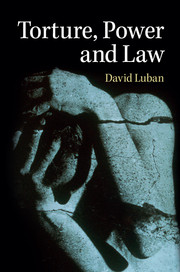Book contents
- Frontmatter
- Dedication
- Contents
- Preface
- Acknowledgments
- I Downgrading rights and expanding power during post-9/11 panic
- II The ticking bomb as moral fantasy and moral fraud
- 3 Liberalism, torture, and the ticking bomb
- 4 Unthinking the ticking bomb
- III The evils of torture
- IV Complicity in torture
- Main index
- Index of legal authorities
- References
4 - Unthinking the ticking bomb
Published online by Cambridge University Press: 05 September 2014
- Frontmatter
- Dedication
- Contents
- Preface
- Acknowledgments
- I Downgrading rights and expanding power during post-9/11 panic
- II The ticking bomb as moral fantasy and moral fraud
- 3 Liberalism, torture, and the ticking bomb
- 4 Unthinking the ticking bomb
- III The evils of torture
- IV Complicity in torture
- Main index
- Index of legal authorities
- References
Summary
Preface
This chapter was originally written for an essay collection discussing and honoring Henry Shue’s classic book Basic Rights: Subsistence, Affluence, and U.S. Foreign Policy. Basic Rights is best known for its argument that rights to subsistence – a species of economic rights – are as basic as security rights. My chapter focused instead on a security right, the right against torture, which is another topic central to Shue’s concerns. For Shue, both security and subsistence rights are basic, by which Shue means they are rights that must be satisfied if the enjoyment of other rights is to be possible at all.
There are a few small factual points where the chapter needs to be updated. When I wrote it, the US government had not admitted that it engaged in torture; since then, President Barack Obama has conceded on the record in his official speeches that the United States had tortured captives. The chapter points out that the US public at the time was remarkably indifferent to its government’s torture, and cites public-opinion polls; since then, the same polls have shown a slow but steady increase in pro-torture sentiment (a topic that I take up in more detail in Chapter 10). We now have a better account of the interrogation of Abu Zubaydah, which is discussed briefly in this chapter, through the testimony and memoirs of Ali Soufan, the FBI interrogator who, without resorting to torture or abuse, obtained the most important information that Zubaydah had to give. Soufan’s account supports what I say in the chapter.
- Type
- Chapter
- Information
- Torture, Power, and Law , pp. 74 - 108Publisher: Cambridge University PressPrint publication year: 2014



